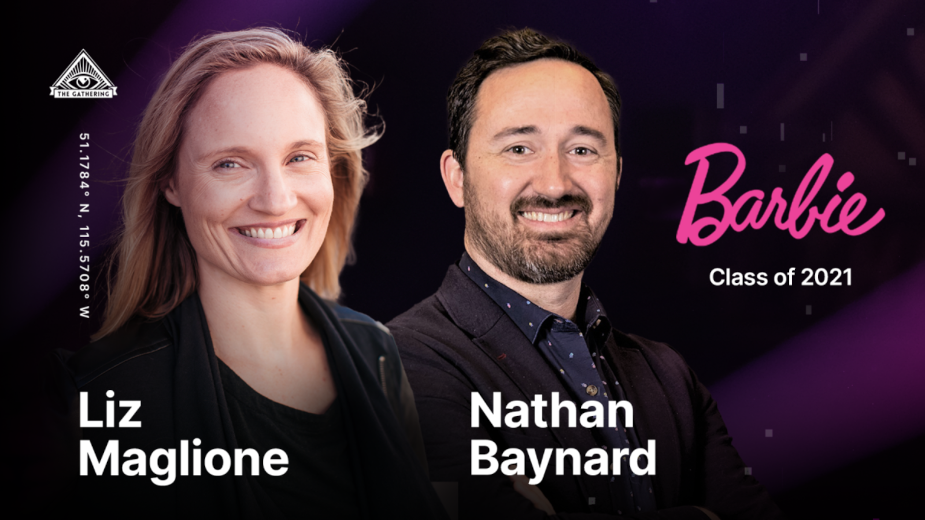
Why Barbie Made Fun of Herself (and You Should Too)

There are obviously about a trillion things to covet about the marketing of the Barbie movie: the partnerships, the music, the art direction, the hype machine that launched it… the list goes on.
But maybe one of the top things on my mind as a marketer while watching the brilliant movie was, “how did a movie like this get made?”
The whole storyline of the movie was about making the Barbie character three-dimensional, and in doing so, exposing the flaws of the 60-year-old brand’s legacy. Not many brands seek out opportunities to shine a light on their flaws, let alone sink hundreds of millions into exposing them.
To me, the humility of the movie was the main thing that made Barbie credible again. The jokes about flat feet, the all-male Mattel boardroom and America Ferrera’s epic monologue about the impossible beauty standards Barbie has contributed to, made the film palatable to a wide audience of Barbie lovers and haters alike.
In an intimate “Inner Sanctum” of about 40 people at The Gathering Summit, we heard the marketing leads at Barbie give credit to the recently appointed CEO of Mattel at the time, Ynon Kreiz, for pushing the movie forward. Kreiz had an entertainment background and a deep trust in filmmakers. He let rights-holder Margot Robbie and director Greta Gerwig exercise the creative licence that perhaps the past two failed attempts at a Barbie movie never could.
The marketers expressed hesitation with handing over the image of Barbie this way. If nothing else, marketers feel tasked with controlling or directing a brand’s image, and they were scared to lose any momentum they’d gained in the past few years, seeing rebounding sales. In other words, they were scared to let go. And the stakes couldn’t have been higher. Mattel had the data: millennial moms didn’t like Barbie and they didn’t want to buy the dolls for their kids. The prospect of losing the lifetime value of those households was dreary.
Barbie needed to take a big swing—and fast. Perhaps Greta Gerwig, Margot Robbie and Ryan Gosling were the perfect millennial trio to right Barbie’s path.
Regardless, Mattel needed to steer Barbie firmly into the cultural conversation they had so sorely missed in the past.
In the closing keynote at The Gathering, Liz Maglione, VP of global marketing communications, said, “Evolution makes your brand relevant. Purpose makes your brand immortal.”
I would argue that even though Barbie was originally created to show Ruth Handler’s daughter (and other girls around the world) she could be anything she wanted to be, at some point, Barbie came to symbolise the opposite: a very narrow perspective of femininity and beauty.
The culture started to outgrow Barbie’s standards—and Barbie was too slow to catch up to the conversation.
It seems like the biggest risk for a brand is to ignore the cultural context you’re in and hope that people read your intentions favourably.
So, it was a big risk to hear those things and do nothing.
Trusting and handing off your brand’s narrative to an imaginative, culturally-relevant—albeit scrutinising—perspective was risky, too. But the potential for rewards—literally spurring a cultural phenomenon—was huge. (And I don’t have to tell you how much it paid off.)
To recap, a few tips marketers can take from Barbie’s leap of faith:
1. Ask yourself: what’s our social context?
What conversations are already happening in the world that may put your brand at risk, or conversely, might give your brand an opportunity to contribute to the conversation in a timely and relevant way? (Think: there could be a small change you could make to make your brand more equitable, and a big PR payoff for leading the way forward.)
2. Trust the experts around you
It would’ve been easy to take one look at Greta Gerwig and Noah Baumbach’s script and say it was going to damage Barbie’s reputation. In fact, the filmmaking experts knew that by entertaining the audience; putting Barbie firmly in this moment’s cultural context; and bringing to light many of the fair criticisms of the brand, they opened the movie up to be adored by people who didn’t previously like Barbie—addressing the brand’s biggest pain point.
3. Flaws make a brand human
OK, maybe not human, but at least humanlike (kind of like the resolution for Barbie’s character going off to the gynaecologist in the real world at the end of the movie). Brands that share the challenges they’re up against earn credibility. If what you’re doing is really worth it, it’s worth running up against challenges along the way. Every protagonist has a quest that makes them more empathetic—a story without challenges is empty and unrelatable. Where can you let go—even just a little—to make your brand feel a little more real?













